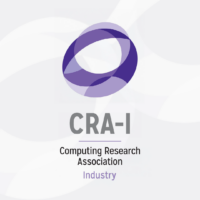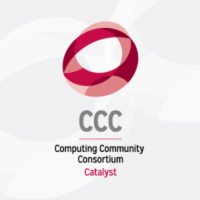CCC Catalyzing Interdisciplinary Computing Research Task Force Releases New CRA Best Practices Document
By Petruce Jean-Charles, Communications Associate, CCC
In a series of six engaging roundtable discussions led by the Computing Community Consortium (CCC), 40 computing research experts from academia, industry, and government explored the complexities of interdisciplinary computing.
Their goal: to pinpoint the hurdles and needs for fostering effective cross-disciplinary research. The consensus? Each team member brings a unique set of skills and viewpoints that, while invaluable, can sometimes be challenging to harmonize. Differences in institutional incentives, disciplinary norms, and expectations can complicate collaboration.
Based on a qualitative analysis of these discussions and existing research in the field, the task force crafted a best practices document to help researchers navigate the interdisciplinary landscape from start to finish. Here are the key takeaways:
- Connect Early: Initiate collaboration or join research teams at the beginning of your project to lay a solid foundation for teamwork.
- Embrace Flexibility: Stay open to innovative ideas and new methods of communication and dissemination.
- Commit to Learning: Be prepared to adapt and learn from your interdisciplinary colleagues.
- Maintain Transparency: Clearly communicate disciplinary norms regarding authorship, funding, and methodologies.
- Acknowledge Biases: Recognize and address any biases or assumptions you might have about other disciplines.
According to member Pam Wisniewski, it was valuable to hear perspectives from different stakeholders – from junior faculty, senior faculty who have successfully led large interdisciplinary collaborations and funding agency representatives.
From the discussions, Wisniewski learned there needs to be a change in the mindset and culture around how interdisciplinary research in computing should be conducted.
“I heard over and over that interdisciplinary research is harder – even harder than research in a single discipline – but it is often discounted as being easier or less valued than the more technical forms of computing research,” Wisniewki said. “Honestly, I think this is the biggest problem we need to tackle moving forward – in changing the perceptions of interdisciplinary research in computing, so that we don’t have to continually evangelize the benefits as we are also trying to do the hard work.”
Katie Siek, CCC Council Vice Chair and member of the task force, explained that she was inspired by the wide range of successful experiences roundtable participants shared, and how unanimously senior members of the computing field emphasized the importance of uplifting the interdisciplinary work of junior faculty.
“I learned how amazing our community is and how much work we have been doing with researchers in lots of different disciplines – from physics to sociology to K-12 education to HIV community partners, ” Siek said. “The other part that gave me a lot of hope was how senior researchers emphasized the need to talk to and support junior faculty in interdisciplinary work – so we added another round table specifically for junior researchers to tell us their current experiences and challenges.”
By following these practices, researchers can better navigate the complexities of interdisciplinary projects and harness the full potential of diverse expertise. Access the best practices document on the CCC Task Forces page, and consider sharing it with anyone engaging in interdisciplinary research projects.









